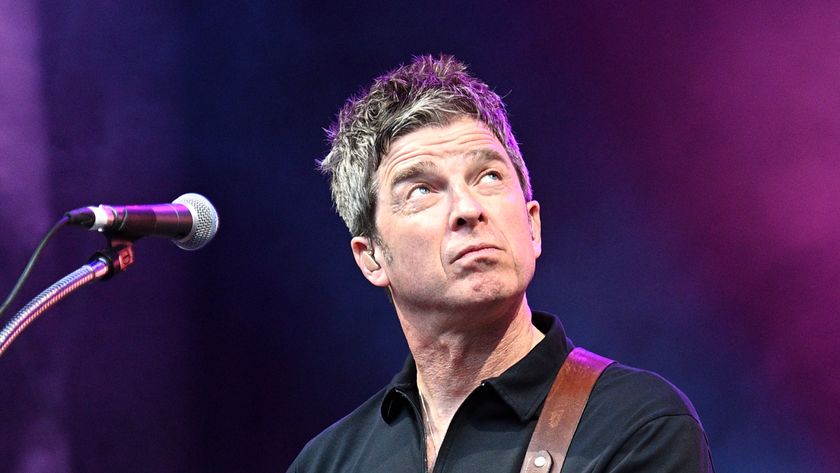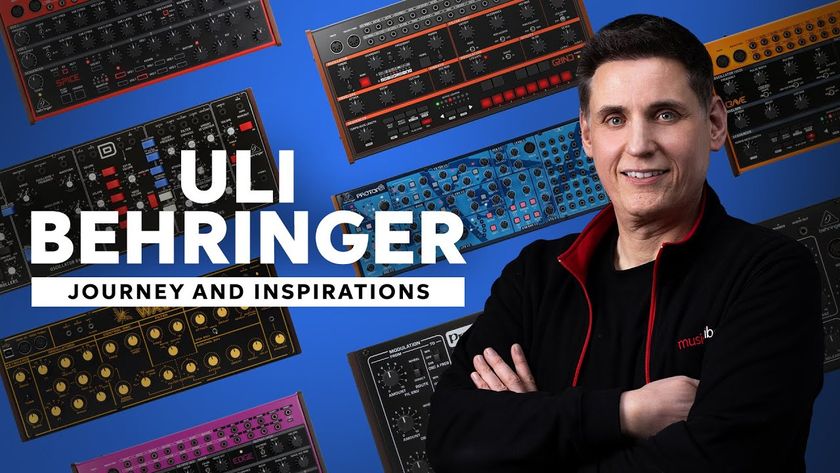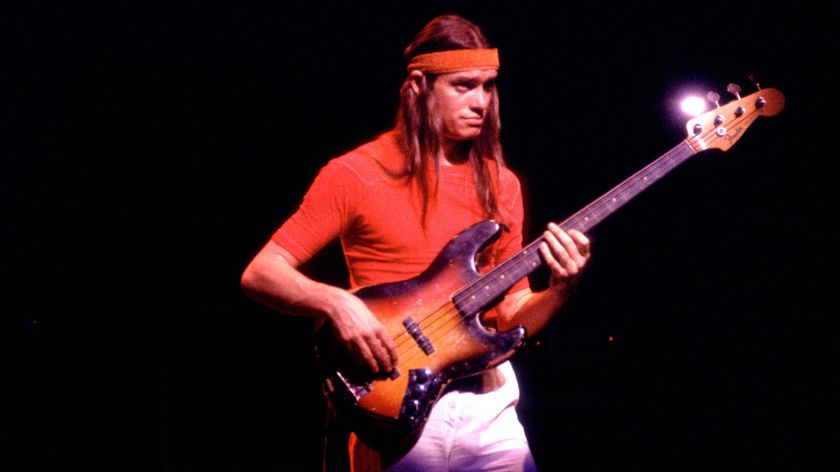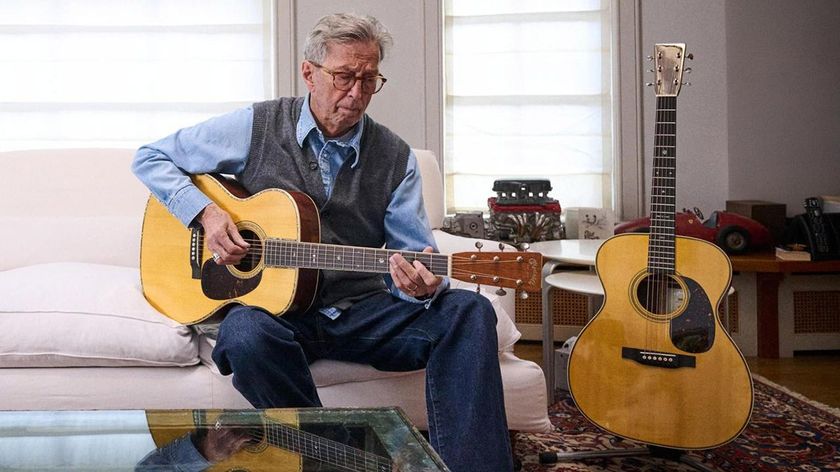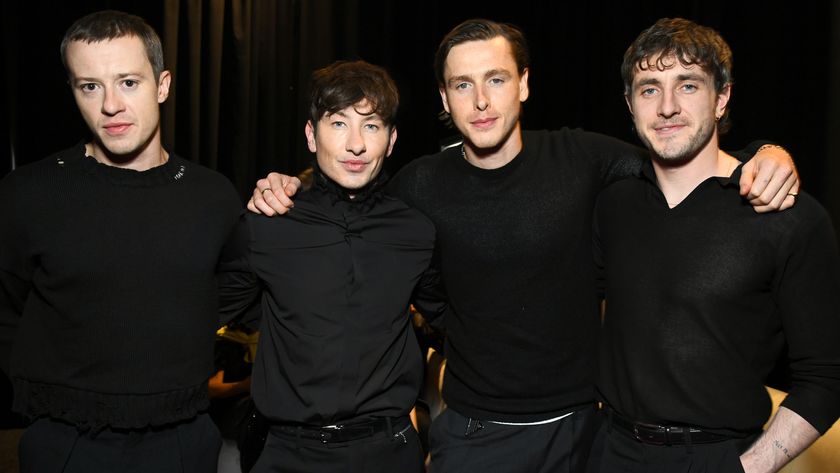So you want to be a... game, TV and movie composer: Tales From The Loop, Limitless and Cyberpunk 2077 composer tells it like it is: "Just don't be a d*ck!"
Paul Leonard-Morgan's tips for success
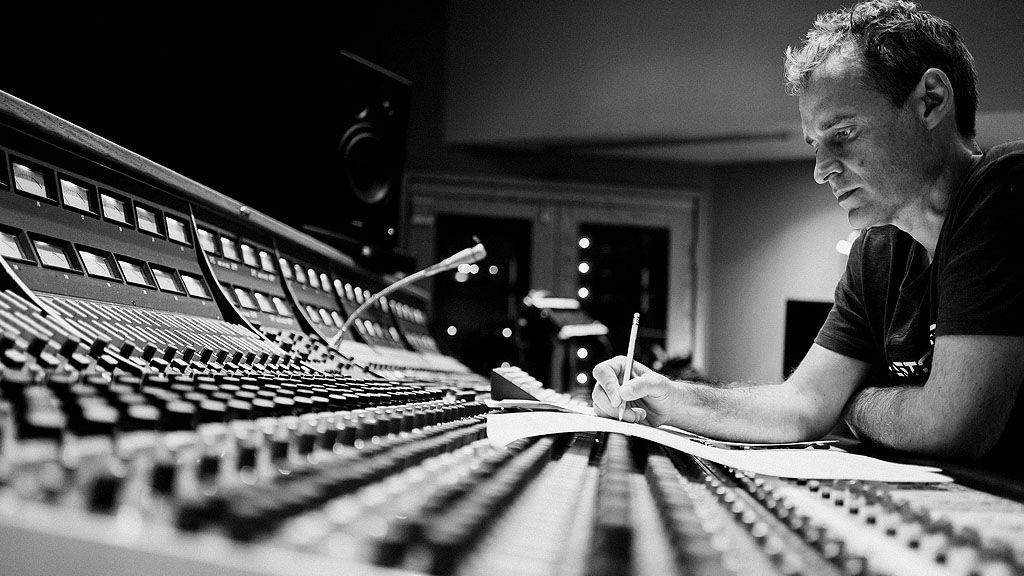
London-born and LA-based composer Paul Leonard-Morgan has scored major films like Limitless, documentaries including Walking With Dinosaurs, TV shows like the current Amazon hit Tales From The Loop (which he composed with Philip Glass), and - whisper because we're not really allowed to talk about it - has music in the forthcoming sure-fire smash video game, Cyberpunk 2077.
Leonard-Morgan is fast becoming one of the most successful composers in Hollywood, yet his route to LA has not been a conventional one. Born in London, he decided to study film music at the Royal Scottish Academy of Music [now the Royal Conservatoire of Scotland], only to major in orchestral scoring that led him to programming and string arranging for some of the coolest and biggest names on the local music scene including Belle & Sebastian, Mogwai, Snow Patrol, Texas and Simple Minds.
His soundtrack work started with smaller TV documentaries, but his score for the short film Reflections Upon the Origin of the Pineapple won him a BAFTA in 2000 and led to bigger commissions including ITV's Fallen (that earned him an Ivor Novello nomination) and the BBC drama series Spooks.
Since then he has shot to fame on the American soundtrack circuit scoring everything from the US Olympic theme to the sci-fi film Dredd. Most recently he has been working on the incredible Amazon TV series Tales From The Loop with legendary composer Philip Glass while putting together music for the much anticipated video game Cyberpunk 2077 with composers Marcin Przybyłowicz and P. T. Adamczyk.
Here he details an extraordinary – and unconventional – route to success and offers some invaluable advice to anyone wanting to score some of the biggest projects in the movie, TV and video game industries.
How did you break into the States after working on shows like Spooks?
Suddenly I was at a piano in front of a thousand people and doing a Q&A with the press.
I did an album called Film Tales with many of the musicians that I'd worked with, like Steve Mason from Beta Band, Isobel Campbell and Esther O'Connor. It was five songs and five instrumentals and they started getting used on adverts in the States, one on a big advert for Chevron, so it was all over the place.
Get the MusicRadar Newsletter
Want all the hottest music and gear news, reviews, deals, features and more, direct to your inbox? Sign up here.
Another got used at the design launch of the One World Trade Centre, someone heard it and asked if I'd like to write the US Olympic anthem. John Williams wrote one, but I didn't know what the hell they were talking about at the time so I said 'no I'm busy'! They kept on coming back and eventually I agreed, wrote it and they flew me out for the premiere.
Suddenly I was at a piano in front of a thousand people and doing a Q&A with the press and being introduced to the world – it was crazy!
And we're guessing that led to even more work…
I said to my wife that I fancied a summer in LA as there was a band I was producing there so we came over, and the Spooks guys were cool with me doing their stuff from LA. I came out, hired a studio and bought some gear to match my Glasgow studio.
I got to know people like Spike Stent and worked on a Gwen Stefani album doing drum and synth programming. Then when I flew back to Glasgow that Christmas I got a call from someone who'd heard the US Olympic anthem saying 'do you want to pitch for this film?'. That turned out to be Limitless which did really well and from there it just kicked off!
How is it that you have become so in-demand?
I'm still trying to work it out! [Laughs] Really it's because I am passionate. You can't think about it as a job because as soon as you do then you're doing it for the money. Someone once said to me 'you do a job for three reasons: the money, because it will help your career and because it will make you happy creatively'.
You have got to earn trust and you have to be good at people management.
For me it's finding that balance. I also bring a collaborative approach and ideas. You have got to earn trust and you have to be good at people management, like you might be working with 20 producers, each with an opinion, so you have to balance it.
It's not about getting on your high horse and saying 'it's my music and I'm not changing it'; it's a collaboration. You do your thing and what you think works, but that is just the start of the collaboration.
What have been the highlights so far?
It's funny, I look back at the early days and just hanging around with the bands was fantastic fun. Glasgow had its own scene with a definite camaraderie. You do have it in LA but it's more business orientated.
The real things that give me the buzz are the discovery moments, the first thing you do. I remember getting that Fallen gig, my first soundtrack, not really knowing what I was doing, but people were all loving it going, 'this is so completely different from anything we've heard before' which gave me a great buzz.
Then when I got the film Limitless, I did the pitch over Christmas, then got the call from LA, and I remember my wife came home and I ran out in the snow shouting 'I got it!'. The next day I'm in my studio looking at Bradley Cooper and Robert De Niro peering down at me from my screen.
That was just such a buzz – little old me in Glasgow thinking 'here are these guys staring down at me and I'm writing to this – this is so cool!'.
Tell us about Tales From The Loop
It's an eight-parter on Amazon Prime which is based on the art of a Swedish artist Simon Stålenhag. The writer Nathaniel Halpern was inspired to write each story around one of his pictures.
He did eight one-hour stories about a town under which there's 'The Loop' which makes strange things happen. It's not a sci-fi show, just a wonderful device to enable eight beautiful stories to happen. It's really emotional and melancholic, and I find it strangely optimistic and utterly beautiful – not one to binge as it moves you so much. I cry every time I see episode 4.
And you worked alongside Philip Glass on its soundtrack?
The director Mark Romanek did Episode One – he worked on One Hour Photo and Never Let Me Go. I adore his work and he had wanted to work with Philip Glass for a while.
Philip is the most prolific writer, 82 and writing four operas at the moment!
Philip is the most prolific writer, 82 and writing four operas at the moment! He had never done a TV series but had done films with Errol Morris who I've worked with. I think they [Nathaniel and Mark] said 'well if both Paul and Philip have worked with Errol there must be some kind of similarity somewhere down the line,' so they decided to throw us in a room and see what happened!
I went round to Philip's house, we had coffee and a chat and it was one of the most surreal moments. Philip's stuff is iconic and just sitting there with him saying, 'well this is how I see it, how do you see it Paul?' was incredible, so we sat down at the piano and started writing.
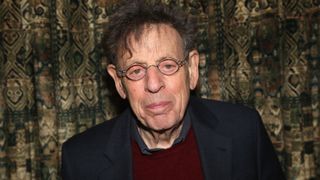
You don't get starstruck,, but you don't want to tread on his toes.
You don't get starstruck, you know, but you don't want to tread on his toes. He was so supportive and gave me so much of his time.
We were trying to find this basic sound for the motif that played whenever you see The Loop and at first you think, 'I wonder if Philip is going to like this', but once I got over that it became this really organic process. It became this beautiful heartfelt thing, and I've never been involved in a project where music is so integral.
How has the lockdown affected your recording work?
The first soundtrack I completed in Lockdown was for a BBC drama called The Nest. I was just coming to the end of the soundtrack with a quartet lined up and lockdown hit.
The players couldn't come in but I needed to get something recorded as this was Friday morning and it was going out on air on the Sunday night! So I put out a tweet and loads of people got in touch. I got some wonderful players: a cellist in LA, the viola in London, one in Glasgow and one in Berlin, so that was our quartet.
We were up all night recording, we chopped it up, sent it to my mixer and then it was out on the Sunday night.
Would it have been easier to use a sample library?
It would have sounded sh*t! I have every sample library under the sun and I am really good at making stuff that sounds like a proper orchestra, combining one sample library with another and it's the combinations that work.
But it does take time, and when you are doing something like a quartet, the real thing can transform a project. I had six hours left to deliver two episodes so it was actually easier to get them in, even though it was a pain in the arse chopping them up.
Is there one orchestral sample library that stands out?
Well what kind of an orchestra do you want to sound like? Traditional European? Hollywood? Recorded at Air Studios for that sound, or Angel Studios where it was completely dry? Rooms have such different sounds and it depends what sound you want to have.
Have you ever been surprised to discover an orchestral soundtrack has been sample or synth generated?
I'll tell you who is amazing at this – what we call mockups – is Harry Gregson Williams. But the score I was always blown away by the sound, but still don't know if it was real or not, was Inception.
The whole soundtrack is brilliant but there is one cue where the synths stand out a mile. It's certainly not a dissing thing as it could have been intentional, but the rest of it I was thinking, 'I don't know if this is real or a combination of both'.
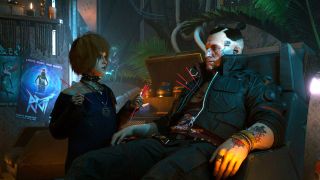
What can you say about Cyberpunk 2077?
I spoke to them three or four years ago after having done Dawn Of War. They have two phenomenal composers Marcin Przybyłowicz and P. T. Adamczyk. We didn't actually write anything together for two years but have written an insane amount of music for it now! The game and scope is beyond comprehension. It's mind-boggling.
Finally what advice do you have for anyone who wants your job?
To f*ck off! [Laughs] I can't emphasise enough: have your own style and don't try and sound like someone else. I'm still discovering mine but I'm getting there! Learn the basics, study other people and you will start to get a style, but it takes years. What also makes you stand out is that you love it and have a passion for it.
It's also about networking, meeting people, and do write for short films with people at art college. Find people around the same age, network, collaborate and in 20 years time they might be the people doing big films.
But the most important advice is simple: don't be a dick. It's my hashtag forever.
Andy has been writing about music production and technology for 30 years having started out on Music Technology magazine back in 1992. He has edited the magazines Future Music, Keyboard Review, MusicTech and Computer Music, which he helped launch back in 1998. He owns way too many synthesizers.

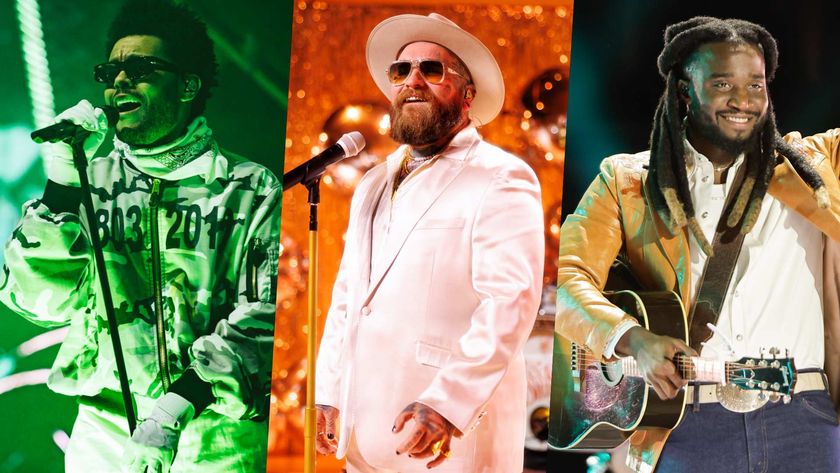
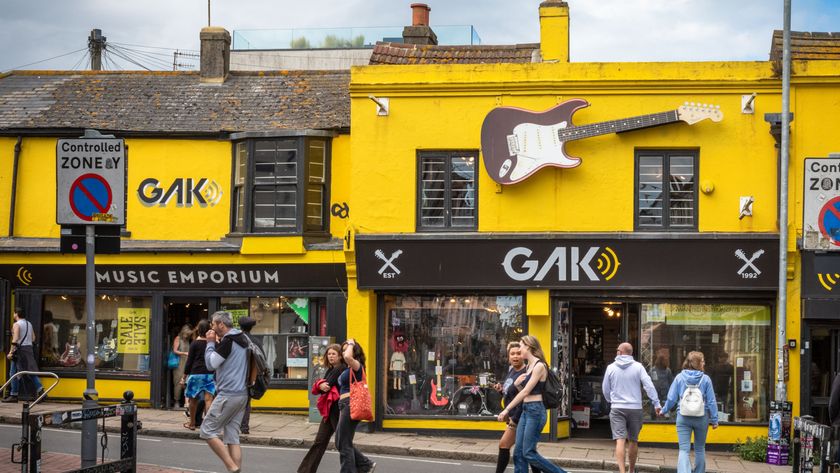
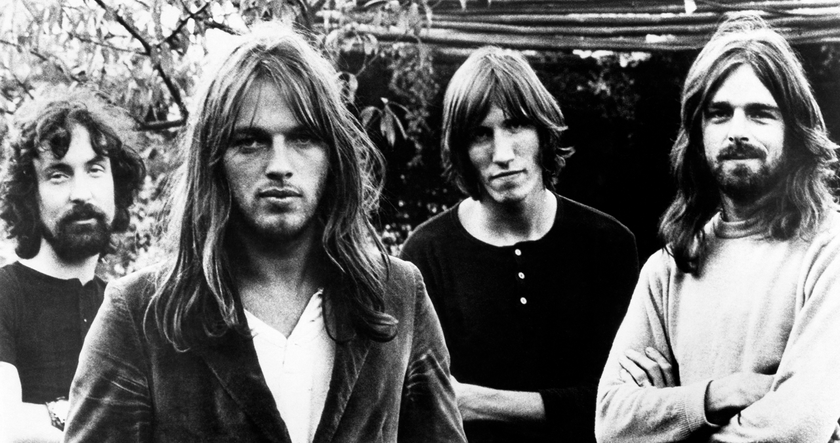


![Chris Hayes [left] wears a purple checked shirt and plays his 1957 Stratocaster in the studio; Michael J. Fox tears it up onstage as Marty McFly in the 1985 blockbuster Back To The Future.](https://cdn.mos.cms.futurecdn.net/nWZUSbFAwA6EqQdruLmXXh-840-80.jpg)
